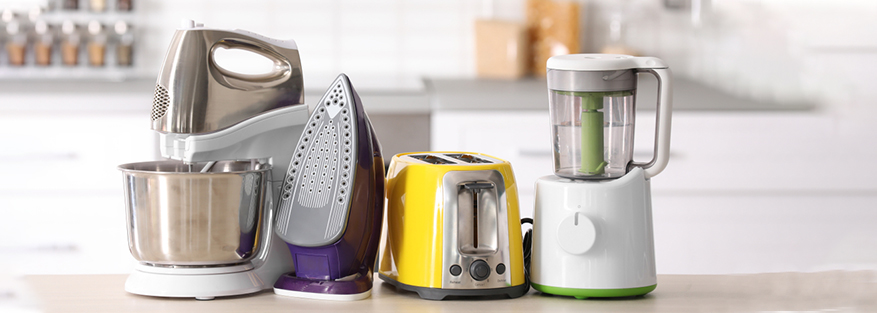Tips for Undertaking Small Appliance Repair at Home

Small appliances play a big role in running a home. From blow dryers to tea kettles, to remote controls to rechargers, these are all small electrical gadgets that we count on to keep us and our household going. These small appliances provide a range of services and you cannot certainly sniff at their functionality because chaos erupts as soon as one of these devices suddenly stops working. Well this really does happen at times and here are some handy tips that can help you take care of small appliances at home yourself.
Rather than calling out a professional or replacing the device you can yourself investigate the small fault with small appliances. You will need a few tools and it is advised that you always keep them handy to be used at any time. These tools may include
- A multipurpose screwdriver- a complete tool box can come even handy
- A magnifying glass
- A pair of tweezers
- Soldering iron
- A reel of solder
Disconnect all main power sources before you begin repairing any small appliances. If it is battery operated, ensure that the batteries have been removed to avoid getting a shock. Once you are done disconnecting all power sources, you will have to take a look at the inner workings of the device. For this you simply will have to remove the housing of appliance by simply unscrewing it.
You can use a screwdriver to remove all the screws. Remember to keep them at a safe place to find them altogether later. Take the housing off to expose components and wires within. You can then use a magnifying glass to inspect wires for damage or fault beings. Be careful not to disturb the fixtures while you inspect. Wires may be burnt or bent which means they are damaged, whereas damaged or faulty capacitors will appear to have exploded. Some components might have become loose from their connections. Make sure each component is connect to the printed circuit board with its legs.
For a damaged component, a soldering iron can be heated and pressed against the connection with the circuit to loosen the component from the board. Be sure you don’t do additional damage to the printed circuit board or any other component or else you will minimize your chances of rectifying the first fault. Lift the component off the board with a pair of tweezers or pliers. Once you have the component in hand, check the model and make and get a new one from a hardware store or an appliance store. You can then fit the new component with the soldering iron to the printed circuit board on the correct point.
If a wire has been damaged, you will have to remove and replace it. You can reconnect the length by cutting the damaged part but it is advised to replace the wire as a better option. For a blown away fuse, get a new one and place it correctly on its points.
You need to take great caution while fixing small appliances as well so that you don’t damage the device further and end up having to replace the entire device, killing all chances of repairs.


 Subscribe to RSS Feeds
Subscribe to RSS Feeds
